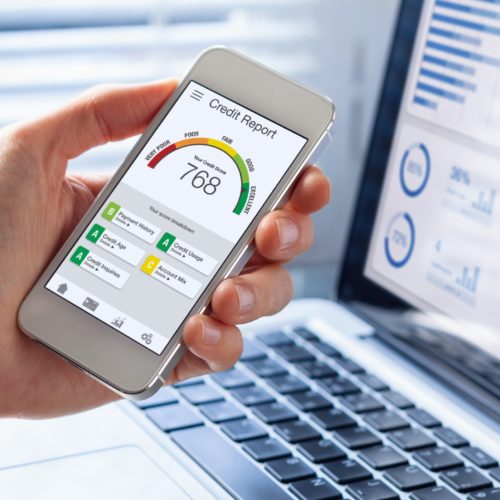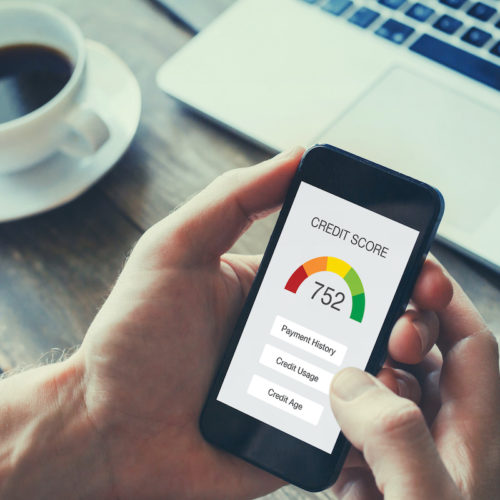Credit is something we often mention when we talk about money.
In fact, we use credit every day to buy things like clothes, food, housing, and transportation – but how much do we really know about it?
You may be aware that it refers to your ability to borrow money or get something of value and pay for it later – but knowing more about credit could save you a pretty penny.
A good credit score could give you financial power – while a bad credit rating could mean lenders shut doors in front of your face all the time. And that’s not something you want, right?
So, if you’ve decided you want to go ahead and achieve financial freedom – you’ll want to learn everything you can about credit.
Lucky for you – that’s exactly what I’ll be covering today!
What is Credit?
Credit is a term we often use in the financial world – and it does have a ton of different meanings.
Attempting to define it in a few words is tricky business – but I love a challenge, so here we go:
When we talk about credit, we may also mean your ability to borrow – or your creditworthiness.
To put it simply, that means how suitable you are considered to be to receive financial credit.
Your ability to borrow is determined by your credit score – which is based on detailed information about your borrowing history.
What are the Types of Credit?
 Now let’s cover the basics! There are two main types of credit: secured and unsecured.
Now let’s cover the basics! There are two main types of credit: secured and unsecured.
Secured credit refers to a loan which is backed by an asset, for example, one of the following:
- Property
- Home
- Auto
- Boat
Unsecured credit, as you may have guessed, is credit with no assets or collateral behind it. The only guarantee that you’ll pay back is your word (and your history of paying back loans).
Credit cards, medical bills, and student loans fall under the category of unsecured credit.
Now let’s look at each of these two types of credit in more detail.
Secured Credit
As I mentioned, secured credit is backed by collateral – which means it also comes with lower interest rates. That’s because there’s an additional guarantee that you’ll pay back the loan.
If you fail to make payments and default the loan, the collateral – your property, home, car, or boat – can be seized and sold by the bank to regain the money.
For people who need a large loan (over $10,000, let’s say) to buy a home or a boat, security credit is a common option.
Unsecured Credit
With unsecured credit, there is no collateral behind your loan – which is why it usually comes with much higher interest rates.
The lender has to trust your word when you say that you’ll pay back – and nothing else.
Let’s look at the main types of unsecured credit in more detail.
Credit Cards
A credit card is one of the most popular types of unsecured credit. With an unsecured credit card, your issuer won’t take a security deposit – but they will charge high-interest rates.
If you fail to make your repayments, the issuer may also take further action, like reporting a delinquent balance to a credit bureau, getting help from a third-party debt collector, suing you in court, or asking the court’s permission to garnish your wages.
Yep – credit cards are not something to be messed with.
Other than that, if you’re not new around here – you probably already know I’m a huge fan of credit cards!
I think applying for a credit card is a sound financial decision – but not before you learn how to manage your money. If you don’t know how to use your credit card to your advantage, it could cause more harm than good.
What’s so good about credit cards, in my opinion? Using a credit card can be a fantastic way to boost your credit score, earn rebates on everyday purchases, save money on travel and other daily spending.
There are now so many different credit card types to choose from – from cashback credit cards to rewards credit cards – that looking for the right credit card could mean having to scroll through endless reviews (before losing the will to get any of them).
So, if you’re looking to take control of your finances, build your credit, and reap awesome rewards – you should check it out.
Medical Bills
Medical bills and loans also fall into the category of unsecured credit.
Whether you’re struggling to pay your medical bills immediately after treatment, or something unexpected happened, and you need to take out a medical loan, these types of credit aren’t secured by any asset.
Bear in mind that, while your medical history isn’t part of your credit report, medical debts can affect your credit reports and scores – so make sure you don’t leave any unpaid for longer than you have to.
If you have unpaid medical bills, your debt could be sold to a collection agency. The agency will then report your debt to credit reports – and that can hurt your credit scores.
Student Loans
Thanks to the exorbitant cost of attending college in the U.S., most people turn to student loans to help them finance their college degrees.
The good news is that student loans are also typically offered to students without any collateral.
The bad news is that they can leave you burdened by hundreds of thousands of dollars of debt for the rest of your life.
What Affects My Credit Score?
And now, let’s get to the really important stuff – your credit score.
Your credit rating is determined by your borrowing history, which comes from credit reports.
These are master documents which include things like:
- Loans you’ve taken out in the past seven years
- Your current loans
- How much money you borrowed
- The minimum payments you’re required to make
- Your payment history – things like late payments, and whether you’re generally on time
- Public records (like bankruptcy)
- Whether you have any loans in default (where you haven’t made payments after a set amount of time) or in collections (the lender sells your loan to a collection agency, who then attempt to recover the amount you’ve borrowed from you directly)
Your credit score is a comprehensive assessment of your ability to handle money – and all these things I mentioned above affect it.
Having good or excellent credit score is so important when you want to improve your financial situation – because that’s what lenders use to determine credit limits, interest rates, and everything else to do with lending you money.
If you continuously demonstrate that you’re able to pay back on time when you’ve borrowed money, banks and other lending institutions will be more likely to give you a lower interest rate and approve higher limits.
While you can survive with poor credit – you won’t thrive until you repair your credit.
And – surviving on bad credit isn’t cheap. You get penalized every step of the way – and that’s not what you want if you’re trying to build financial freedom.
Learn more:
What Are Credit Bureaus?
Credit Bureaus are companies which collect all your credit information – and then make it available (with your permission) when a request is made, say, by your bank, employer or landlord.
You could think of them as information warehouses. It’s where all the information about your borrowing history is stored – and where your bank or lender goes to find out whether you’re someone they want to loan piles of cash to.
So, based on the info collected by a credit bureau, you could either get a loan or be left empty-handed.
There are several credit bureaus, but the most important ones to know are Experian, TransUnion, and Equifax. They’re the ones that have the biggest impact on your credit.
What is Credit Monitoring?
Now, you may be thinking – how accurate are these credit bureaus? Should I be reviewing the information they receive to make sure my credit score is correct?
While they’re specialists in the field and are pretty good at what they do, I do think it is also important to regularly review your credit reports for accuracy, as well as any suspicious changes that could indicate fraudulent activity.
Some financial institutions offer free-of-charge credit monitoring services that track your borrowing behavior on a limited basis – while paid-for services will typically offer more comprehensive features that make it possible to detect fraud sooner.
That said – most credit monitoring services will offer protection only after the fraudulent activity, such as identity theft, has already happened.
So, they should really be used in addition to other things you can do to protect yourself against fraud – like being vigilant about how and when you share your Social Security numbers, as well as bank account and credit card numbers.
Make Credit Work For You
Having excellent could help you save money and generally make your life easier – so make it a priority.
Pay your bills on time and avoid carrying a balance on your credit card – paying it in full each month is your best bet. Credit card debt is the most expensive form of financing anyway – so you’re not doing yourself any favors by carrying over a balance month after month.
One sure way to make credit work in your favor is by having a long credit history, so taking out a credit card (as well as managing your spending) can be a highly rewarding financial move.
No matter what you do – remember that credit is handy for most consumers. Our world is becoming increasingly dependent on credit – so make sure the choices you make only give your credit score a boost, not the other way round.





Read 1 comment or add your own
Read Comments